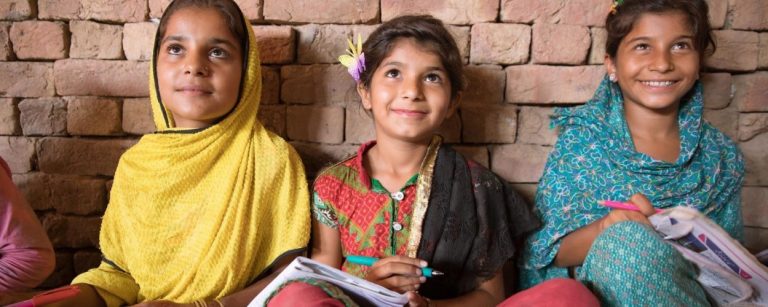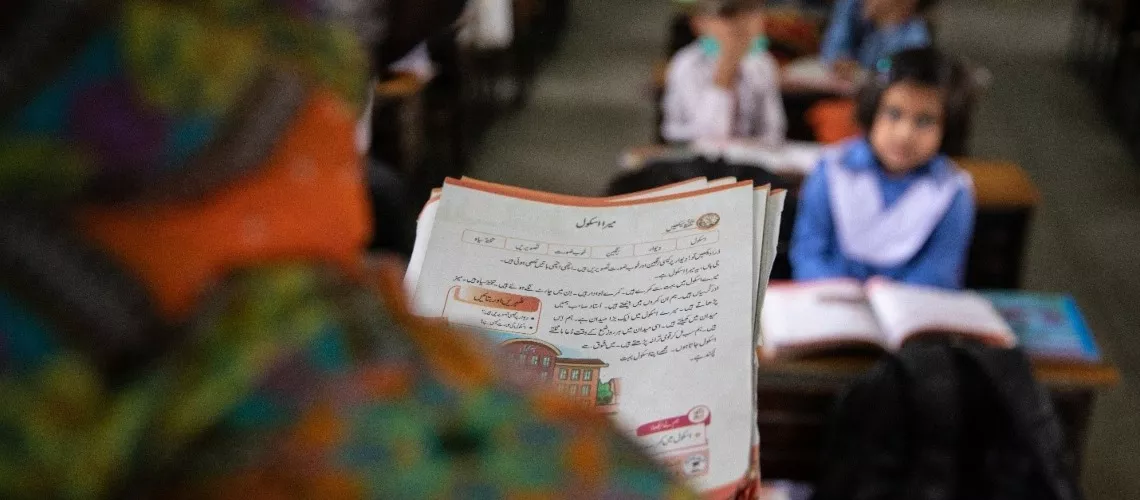
Invest in female education which is an ‘Untapped Powerhouse’
Prof Dr. Abdullah G Arijo
Pakistan has made significant progress in girls’ education in the last decade, but still 12 million girls are out of school, with only 13% of girls reaching grade nine.
Society’s advancement is intricately linked to education, and undeniably, it is a key instrument to bring about improvements in societies. Based on this premise, doesn’t it make sense to invest heavily in education for all, including girls and women? The answer, my dear reader, is an unequivocal yes. So, invest in female education which is an ‘Untapped Powerhouse’.
Gender equality in education is not merely a moral issue but has considerable economic implications as well. An educated woman is more likely to contribute to her family’s well-being, the economic growth of her community, and to society.
An educated woman changes not just her own world, but also the world around her
Why must we make an investment in female education? Are there tangible reasons to invest in women’s education? Let’s delve into some of the benefits.
- Economic Growth: Women with education have greater chances of gaining employment and contributing to the economy.
- Healthier and Smarter Generations: Educated mothers are more likely to ensure their children are healthy and are adequately educated, creating a virtuous cycle.
- Reduced Poverty: Education empowers women to overcome poverty and improve their living conditions.
- Sustainable Societies: Educated women are more aware of their environment and tend to support sustainability initiatives.
Don’t you agree that these alone justify the need to invest in female education?
While the reasons to invest in female education are myriad, it calls for coordinated efforts from governments, NGOs, and everyone in society. A deliberate strategy to increase female literacy levels can bring about exponential changes in societal dynamics.
Making Education Accessible
The first step in this grand endeavor is to create an environment conducive to girl’s education. Governments need to enforce laws that ensure equal education opportunities for girls.
Empowering Women
We ought to provide women with the tools needed to gain the maximum benefit from their education. Empowering them to use their knowledge effectively can significantly amplify the positive impacts.
The Road Ahead
The journey to ensure every girl gets the education she deserves is long but promises gratifying results. In the end, isn’t it worth every effort to improve the lives of half of humanity and, in turn, the entire society?
Let’s shed light on the issue of gender disparity in education, specifically focusing on the importance of education in Pakistan among the female folk. Education – the bedrock of society, the ladder to progress – is crucial to the development of any nation. But what happens when half the population is denied the fundamental right to learn?
The Importance of Education in Pakistan
The importance of education in Pakistan cannot be understated. Education is the spine that holds the nation upright, guiding progress and development. It cultivates critical thinking, towards informed and active citizenship. But Can Pakistan boast of having achieved universal education?
In the pursuit of development, female education is often sidelined, given the socio-cultural barriers and gender norms. In a society where child marriages, restrictive norms, and security concerns loom large, education for female folk is heavily compromised.
Also read: Facing the Challenges of Girls’ Education in Pakistan
Now, why is female education so important? How can it transform Pakistan?
An educated woman changes not just her own world, but also the world around her. She can defend her rights, participate actively in decision-making processes, contribute economically to her family, and educate her children.
In the context of Pakistan, which faces serious issues like poverty and population explosion, female education can act as a tool for transformation. An educated woman can contribute to the workforce, boosting economic development. Furthermore, she can control her reproductive health better, contributing to healthier, smaller families.
To invest in female education is to invest in society and our shared future
Several organizations and government bodies are working relentlessly towards uplifting the status of female education. However, this battle needs a comprehensive strategy. Awareness campaigns, monetary incentives, stringent laws against child marriages, and safer transportation are some necessary measures. The participation of the community, particularly men, is also crucial in this transformation. Only then can we remove the barriers faced by women.
Moving forward
Pakistan’s development is intrinsically tied to the education of its womenfolk. Each step taken towards this noble goal not only caters to the rights of women but will also contribute to the overall progress of Pakistan.
We therefore must never undermine the importance of education in Pakistan extending far beyond the walls of the school, into homes, communities, and the nation at large. It is critical for the growth, progress, and transformation of the nation, as it directly influences the lives of its primary caregivers, women. Hence, to invest in female education is to invest in society and our shared future. It isn’t just about educating half the population; it’s about unlocking the potential of every individual and thereby enhancing overall societal progress.
Mahatma Gandhi once said, “If you educate a man, you educate an individual, but if you educate a woman, you educate an entire nation.”
________________
 Prof. (R) Dr. Abdullah G. Arijo is Advisor and Visiting Professor, SBBUVAS, Sakrand, Pakistan. He is Ex-Chairman, Department of Parasitology, Sindh Agriculture University and Ex-Advisor Academics & P&D to Vice Chancellor SAU Tandojam
Prof. (R) Dr. Abdullah G. Arijo is Advisor and Visiting Professor, SBBUVAS, Sakrand, Pakistan. He is Ex-Chairman, Department of Parasitology, Sindh Agriculture University and Ex-Advisor Academics & P&D to Vice Chancellor SAU Tandojam
Sir I really appreciate your efforts to spread awareness about women education.
Dr. Abdullah Arijo’s writing style is clear and concise, making complex topics accessible to a wide range of readers. Overall, his article serves as a valuable contribution to the ongoing discussion on the significance of women’s education in our society today.